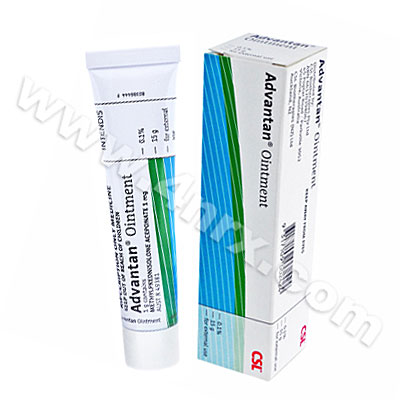 |
Home  Skin Skin  Advantan Ointment (Methylprednisolone Aceponate) Advantan Ointment (Methylprednisolone Aceponate) |
|
|||||||||
|
Advantan Ointment (Methylprednisolone Aceponate)
What is Advantan Ointment (Methylprednisolone Aceponate) used for? Advantan Ointment (Methylprednisolone Aceponate) is a topical treatment used to relieve inflammatory and allergic skin conditions, such as erythema, itchiness, pain, irritation, eczema, neurodermatitis, lupus, psoriasis, erythema and other conditions affecting the skin. The active ingredient in this ointment is a type of corticosteroid, which is used to reduce inflammation, redness and other symptoms caused by these conditions. How should I use Advantan Ointment (Methylprednisolone Aceponate) ? Advantan Ointment (Methylprednisolone Aceponate) should be applied directly to the area of the skin requiring treatment. You should follow all instructions provided to you by your physician. Patients are normally directed to apply a thin layer of this cream to the skin once per day if treating eczema, and twice per day if treating psoriasis. Your physician may tell you to continue using this cream for up to 12 weeks, however it is important to note that prolonged use of this cream is not recommended. Do not use it for longer than prescribed by your physician. What are the side effects of Advantan Ointment (Methylprednisolone Aceponate) ? Side effects of Advantan Ointment (Methylprednisolone Aceponate) include:
Patients may also notice stretch marks, acne, dermatitis or other affecting the skin. Consult your physician if you notice any side effects. Please Note Strictly follow all instructions provided to you by your physician or pharmacist while using Advantan Ointment (Methylprednisolone Aceponate). Optimum and safe dosage can differ based on the patient and the condition being treated. As this medication may be unsafe for certain patients, it is essential you always inform your physician if you are pregnant or breastfeeding, as well as if you have any allergies, other illnesses, or ongoing health conditions, and if you are taking any other form of medication, supplements, or herbal products. Immediately seek emergency medical care if you have any allergic or hypersensitive reaction. Common signs of a reaction include hives, swelling, skin rashes, chest pains, as well as trouble breathing or swallowing. 
|
|||||||||||||||||